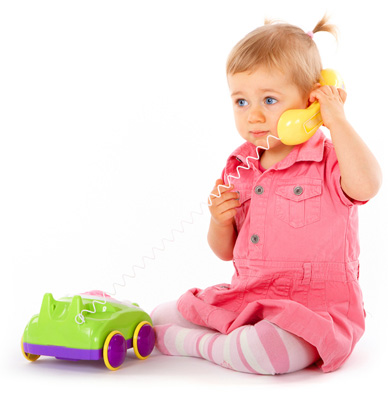What to Expect as Your Child Grows:
Well Child Care at 18 Months
Toilet Training
At eighteen months, most toddlers are not yet showing signs that they are ready for toilet training. When toddlers report to their parents that they have wet or soiled diapers, they are starting to become aware that they prefer to be dry. This is a good sign and is worth praising your child. Toddlers are naturally curious about the use of the bathroom by other people. Let them watch you. It is important not to put too many demands on a child or shame the child during toilet training.
Behavior and Discipline
- Toddlers sometimes seem out of control, or too stubborn or demanding. At this age, children often say “no” or refuse to help.
- Divert and substitute. If a child is playing with something you do not want her to have, replace it with another object or toy that she enjoys. This approach avoids a fight and does not place a child in a place where she will say “no.”
- Teach and lead. Have as few rules as necessary and enforce them. Make rules for the child’s safety. If a rule is broken, after a short, clear, and gentle explanation, immediately find a place for your child to sit alone for one minute. It is very important that a “time-out” comes right after a rule is broken.
- Make consequences as logical as possible. For example, if you do not stay in your car seat, the car does not go. If you throw your food, you do not get any more and may be hungry.
- Be consistent with discipline. Do not make threats that you cannot carry out. If you say you are going to do it, do it.
- Be warm and positive. Children like to please their parents. Give lots of praise and be enthusiastic. When children misbehave, stay calm and say, “We cannot do that. The rule is ______.” Then repeat the rule.
- Praise your child for behaving well.
Reading and Electronic Media
Toddlers have short attention spans, so stories should always be short, simple, and have lots of pictures. The best choices are large-format books that develop one main character through the action and activity. Make sure the books have happy, clear-cut endings.
Dental Care
After meals and before bedtime, clean your toddler’s teeth with a clean cloth or very soft toothbrush. It is now recommended that you make your child's first dental appointment.
Safety Tips
- Child-proof the home. Go through every room in your house and remove anything that is valuable, dangerous, or messy. Preventive child-proofing will stop many possible discipline problems. Don’t expect a child not to get into things just because you say so.
- Choking and Suffocation
- Keep plastic bags, balloons, and small hard objects out of reach.
- Store toys in a chest without a dropping lid.
- Cut foods into small pieces. Avoid foods on which a child might choke (popcorn, peanuts, hot dogs, or chewing gum). - Fires and Burns
- Keep hot appliances and cords out of reach.
- Don’t cook with your child playing at your feet.
- Keep hot foods and liquids out of reach.
- Turn the water heater down to 120° Fahrenheit. - Falls
- Make sure that drawers, furniture, and lamps cannot be tipped over.
- Do not place furniture (on which children can climb) near windows or on balconies.
- Install window guards on windows above the first floor (unless against your local fire code).
- Make sure that windows are closed or have screens that cannot be pushed out.
- Don’t underestimate your child’s ability to climb. - Car Safety
- Never leave your child alone in the car.
- Use an approved toddler car seat correctly and wear your seat belt.
Pedestrian Safety - Hold on to your child when you are around traffic.
- Provide a play area where balls and riding toys cannot roll near the street.- Water Safety
- Never leave an infant or toddler in a bathtub alone—NEVER.
- Continuously watch your child around any water, including toilets and buckets. Keep lids of toilets down. Never leave water in an unattended bucket. Store buckets upside-down. - Poisoning
- Keep all medicines, vitamins, cleaning fluids, and other chemicals locked away.
- Put the poison center number on all cell phones.
- Buy medicines in containers with safety caps.
- Do not store poisons in drink bottles, glasses, or jars.
Smoking
- Children who live in a house where someone smokes have more respiratory infections. Their symptoms are more severe and last longer than those of children who live in a smoke-free home.
- If you smoke, set a quit date and stop. Set a good example for your child.
Immunizations
- At the eighteen-month visit, your child will usually receive a Hepatitis A vaccine.
- Children over the age of six months should receive an annual flu shot.
- We will attempt to check your child’s hearing and vision. Early detection is the key to correcting problems and avoiding lifelong impairment.



